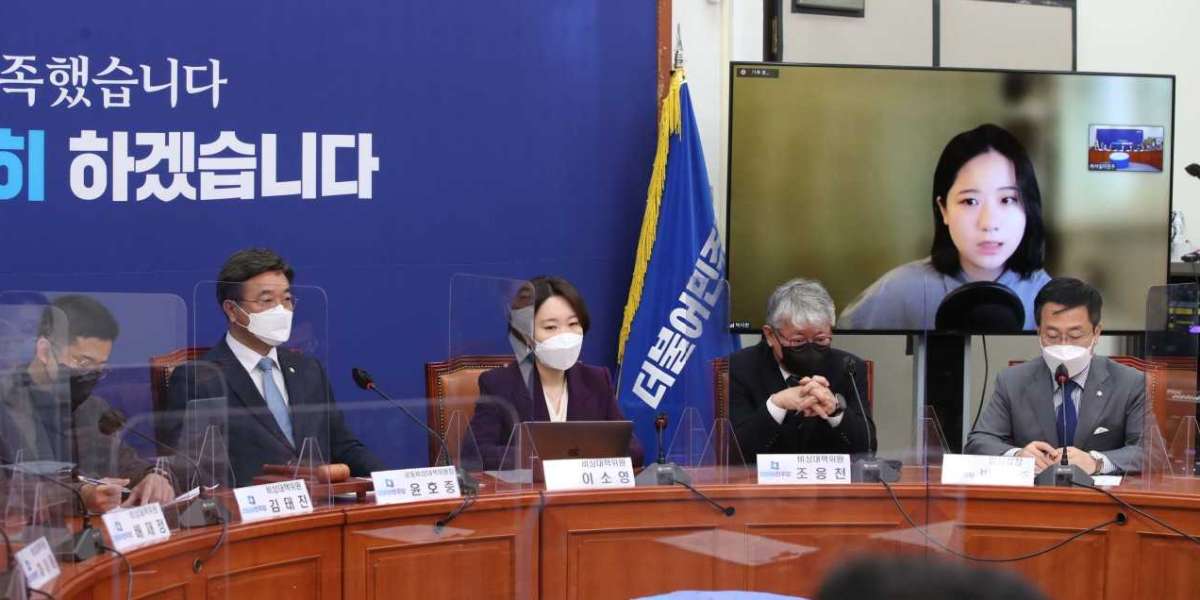Following its defeat in the 20th presidential election, the liberal Democratic Party of Korea is witnessing an intense leadership division as it attempts to reorganize ahead of a second presidential election scheduled for June this year.
Having lost the presidential election by a razor-thin margin, the Democratic Party has declared a state of emergency, which will begin with a leadership transition.
As a result, Rep. Song Young-gil stepped aside as party chairman, and the party's Floor Leader, Rep. Yun Ho-jung, took over as chairman and chaired an interim steering committee that will operate until the June municipal elections.
The Democratic Party appears to be fixated on the concept of elevating youthful politicians to the forefront in order to stress its desire for transformation in the political arena. Following in the footsteps of the People's Power Party, which won the election by concentrating on males between the ages of 20 and 30, the liberal party believes it can do the same by focusing on women between the ages of 20 and 30.
Yun chose Park Ji-hyun, deputy chairman of the liberal party's women affairs committee, to co-chair the emergency steering committee with him on Sunday, and appointed persons in their 20s and 30s to half of the committee's roles, according to a press release. Park, 26, is well-known for her work in the battle against digital sex crimes, which included putting light on the infamous "Nth room" incident. She was recruited by the liberal party in January.
The Democratic Party, on the other hand, appears to be divided about who should be in charge of the party for the time being, as well as on what techniques should be employed to win back votes. Because of Lee's narrow defeat, there is ambiguity about the direction the party should pursue.
The decision by the party leadership to allow Yun to assume the reins until the local elections has already drawn criticism, with some believing that Lee should be in charge of the party as its new leader instead of Yun. They argue that the fact that Yun is serving as the chairman of the emergency steering committee is insufficient evidence of the party's commitment to change and innovation.
Rep. Kim Du-kwan of the Democratic Party speculated in a Facebook post Monday that the party was attempting to avoid overhauling its leadership and instituting reforms by appointing Yun Ho-jung, who bore a great deal of responsibility for the party's defeat in the presidential election, as chairman of the committee and by appointing members from specific factions to the committee.
"In particular, floor leader Yun Ho-jung is unqualified to serve as the chairman of the committee since he allowed party members to deliberately and continuously denounce our presidential candidate and even declare support for candidate Yoon Suk-yeol."
On Facebook, Kim, a prominent pro-Lee figure inside the party, stated that 19,151 members had voiced the need to replace Lee as the chairman of the emergency steering committee and to nominate new committee members who can assist in putting the party back on track ahead of the June elections.
The legislator went on to say that if the party's orientation continues intact and Yun remains in the leadership position, the party would suffer a huge setback in the June elections, similar to what happened in the 2006 local elections.
Not only is Kim a vocal opponent of Yun's leadership in the run-up to the local elections, but he is not the only one. Dozens of Democratic Party legislators and members have publicly expressed their discontent with the decisions made in the wake of Song's departure from the Senate.
Representative Lee Soo-jin of the liberal party said in a social media post Sunday that the party "did not even ask anything" of its lawmakers and instead appointed Floor Leader Yun as the emergency steering committee's leader, despite the fact that Yun is "completely responsible" for the failure of reform efforts.
This is the answer to the current situation: the formation of an emergency steering group under the leadership of Lee Jaemyung.
In the majority of cases, presidential candidates who were defeated in the election spent a few months in the shadows to accept responsibility for the disappointing outcome on behalf of the political parties and groups that supported their campaigns. Power is frequently shifted away from defeated candidates and their close associates after a presidential election.
In South Korean politics, it is highly rare to ask a defeated candidate to quickly return and take over the reins.
However, the fact that Lee was defeated by such a narrow margin encourages pro-Lee people to raise their voices in preparation for the next election and, in some cases, to run for crucial party positions in the future elections.
In contrast to presidential elections, where campaigns are staged to encourage voters to focus on candidates before their associated political parties, local elections encourage voters to focus on the image of each political party, allowing them to choose their candidates by calculating how approachable, clean, and considerate a party appears to be.
The Democratic Party is under pressure to restructure in a fashion that is acceptable to both party members and common people, and pro-Lee leaders and others are adamant in their support for the reforms. Lee himself has made no public statements in response to the requests for him to be appointed as the chairman of the emergency steering group.
The only subject on which the party appears to be unanimous is the need to increase the number of votes cast by young women in their 20s and 30s. However, President Moon Jae-in and members of the liberal party have already made it more difficult to emphasize this message by sending flowers of sadness to the burial of An Hee-father, jung's who was a former governor of South Chungcheong Province under his leadership.
An ex-Democratic Party member was sentenced to three and a half years in jail in 2019 for sexually abusing his assistant, according to court documents.
In response to their expression of sympathy to a sexual offender at a time when the party is attempting to appeal to women in their 20s and 30s, Moon and other party members have come under fire from some quarters.
'There are a variety of methods for them to privately express their condolences without making them public,' Park said in a Facebook post on Saturday, just before assuming the co-chair role for the emergency steering group. "
"Even though the Democratic Party lost the election by a razor-thin margin, the Democratic Party, regardless of the outcome, must seek reform and transformation."
Meanwhile, Moon's popularity rating has begun to decline as people await the transition of power following the administration of Moon, which has been in power for five years.
The approval rating of Moon fell to 38.1 percent in a Realmeter survey of 1,018 respondents conducted last Thursday and Friday, a decrease of 5.8 percentage points from the previous week. His disapproval rating increased by 7.3 percentage points to 58.8 percent throughout this period.



